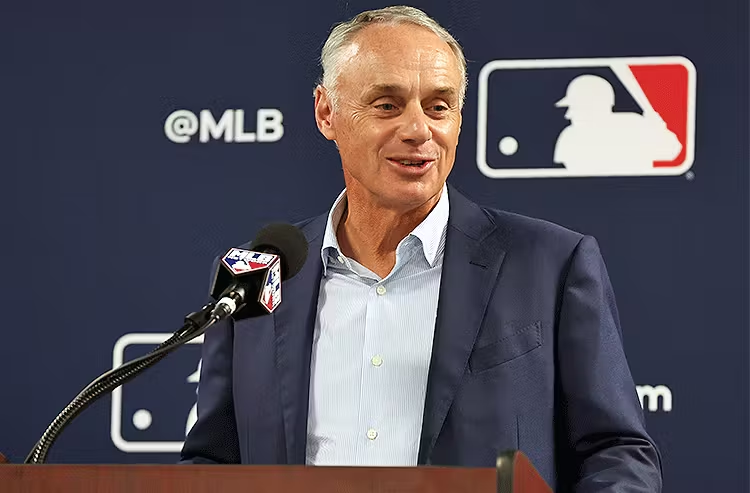Recreational sports gambling is now a core part of sports fandom, on par with NCAA tournament brackets and fantasy sports. In a world where betting is ubiquitous, Major League Baseball has been trying to balance integrating gambling into the fan experience while maintaining its integrity and avoiding alienating those who oppose gambling. This balance became a topic of discussion recently following the scandal involving Shohei Ohtani’s interpreter, Ippei Mizuhara, who was accused of stealing millions of dollars from the two-way star and using it for illegal sports gambling.
At the 2024 Associated Press Sports Editors Commissioners Meetings, MLB commissioner Rob Manfred addressed the impact of these incidents on the league’s stance towards gambling. Manfred emphasized that the league is wary of certain types of bets, especially prop bets—wagers on individual outcomes within games, like an at-bat. These bets are seen as riskier because they could be influenced by a single player’s actions. Manfred noted, “We’ve been on prop bets from the very beginning. When we lobby in states, there’s always certain types of bets that we have lobbied against — I mean, the first pitch of the game, we really don’t want that available as a prop bet.” The concern is that these specific bets are easier to manipulate, as compared to something like trying to get a whole team to throw a game.
Regarding the Ohtani scandal, Manfred highlighted that the accused party was the interpreter, not a player. He added that incidents like these compel the league to reevaluate and strengthen its integrity measures. MLB has a full-time integrity and compliance team, and while players can gamble legally on other sports, they are prohibited from betting on baseball or softball at any level. This includes Major League Baseball, minor leagues, college, and high school games. He reminded that former Marlins pitcher Jarred Cosart was fined in 2015 for illegal gambling but was not found to have bet on baseball.
The commissioner also pointed out that MLB’s integrity system detected the gambling scandal involving the University of Alabama’s baseball team, which led to the firing of the head coach. The suspicious $100,000 bet was placed at the BetMGM sportsbook at Great American Ball Park, linking it to Alabama head coach Brad Bohannon. Manfred said that this incident validated the MLB’s monitoring system, as it was able to detect the problem through legal betting channels.
Manfred’s comments on legalized sports betting were both insightful and somewhat surprising. He mentioned that MLB was “dragged into” the issue through a Supreme Court case, Murphy vs. National Collegiate Athletic Association (2018), which led to the explosion of legal sports betting in many states. While the commissioner acknowledged that the league didn’t have much choice, he noted that legalized gambling is easier to monitor than underground bookies and that it potentially puts less pressure on athletes to get involved in illicit activities.
Despite this, MLB has visibly embraced sports betting, with gambling ads prevalent and sportsbooks installed in stadiums. Still, Manfred concluded that the benefits of legalization, especially in terms of monitoring and maintaining the integrity of the sport, outweigh the drawbacks. As he put it, “We find ourselves in this world, and you can make an argument from an integrity perspective we’re in a better position.”















































